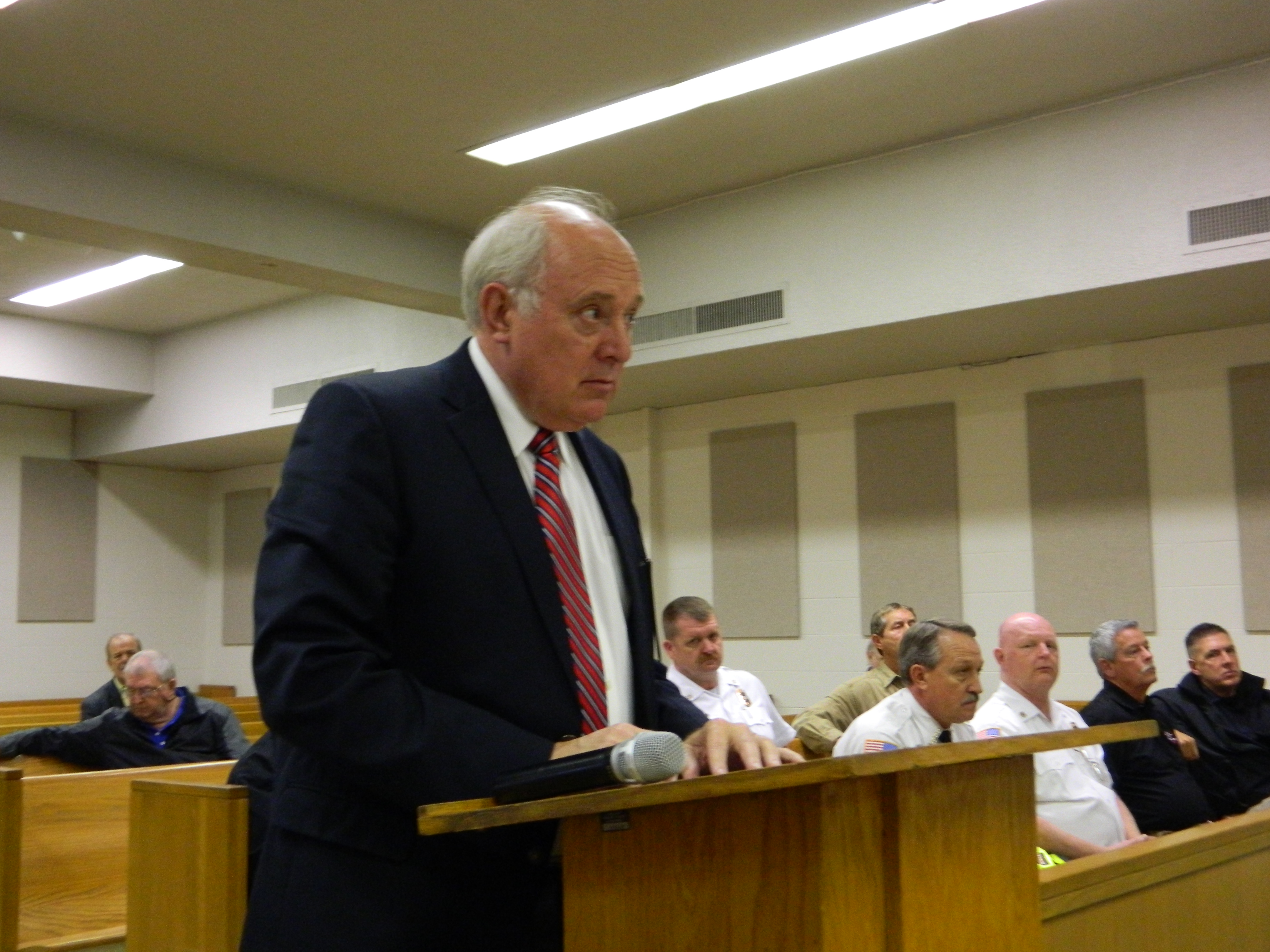CLEVELAND, Tenn. - The Bradley County Commission is providing concrete support for the county school system's claim that the city of Cleveland owes the school district more than $800,000 in previously distributed liquor tax revenues.
On Monday, the Bradley County Commission voted 13-0 to join Bradley County Schools in seeking a judgment in the matter.
By taking the action, the Bradley County Commission will counter the city's claim that Bradley County Schools has "a lack of standing" as a plaintiff in the issue, said attorney James Logan, who represents the school system.
Logan said the County Commission, as the primary funding body for the school system though property tax revenues, does have legal standing.
Before voting, a number of commissioners sought clarification on liabilities that might occur as a result of joining the legal dispute.
"If it looks better for us to be behind them [the school board], I'm all for that," Commissioner Charlotte Peak said. "But I'm not for being held liable at the end of the day if ... we do not win it and then the commission winds up being liable for any attorney fees or anything like that."
Attorney fees cannot be recovered as part of the process, Logan said. The only cost to the county would be half of an estimated $300 to $400 court-related filing fee, he said.
Commissioner Jeff Yarber said he wanted to assure the City Council that the opportunity to negotiate still exists.
"So, if they are willing to negotiate, I want to make sure that door is always open," Yarber said.
Logan said that has been the intent from the start.
Bradley County Schools filed the complaint this April after attempting to reach a resolution with the Cleveland City Council for several months.
A 2013 County Technical Assistance Service survey determined that Cleveland owed the county school system an estimated $720,000 in liquor tax revenues that has accumulated over the last 30 years.
With the passing of another year without proper distribution of those revenues, that amount has grown by another $80,000, Logan said.
Tennessee Code Annotated §57-4-306, which governs the distribution of revenues collected for the sales of liquor consumed on premises, is at the heart of the issue, said Gary Hayes, a CTAS consultant.
The code states that 50 percent of liquor consumption proceeds allocated to the local government body are to be "expended and distributed in the same manner as the county property tax for schools is expended and distributed."
The code's application to Cleveland has been repeatedly challenged by Councilman Richard Banks.
According to his understanding of the code's text, cities such as Cleveland - which operates its own school system separate from the county - do not owe those revenues to the relevant county school systems, Banks said.
Paul Leach is based in Cleveland. Contact him at paul.leach.press@gmail.com.

